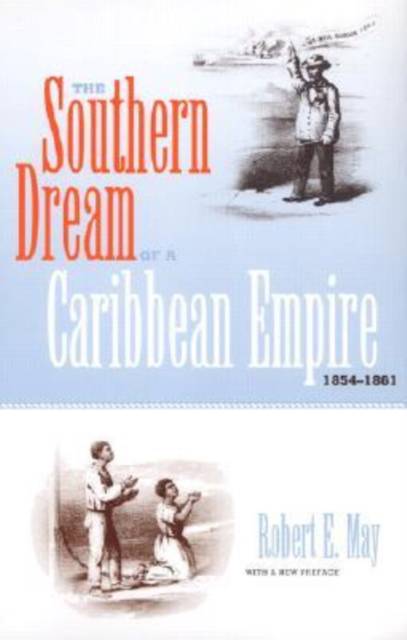
- Retrait gratuit dans votre magasin Club
- 7.000.000 titres dans notre catalogue
- Payer en toute sécurité
- Toujours un magasin près de chez vous
- Retrait gratuit dans votre magasin Club
- 7.000.0000 titres dans notre catalogue
- Payer en toute sécurité
- Toujours un magasin près de chez vous
38,45 €
+ 76 points
Description
"The great value of the book lies in the manner in which May relates the expansionist urge to the "symbolic" differences emerging between the North and the South. The result is a balanced account that contributes to the efforts of historians to understand the causes of the Civil War."--Journal of American History "The most ambitious effort yet to relate the Caribbean question to the larger picture of southern economic and political anxieties, and to secession. The core of this superbly documented book is a detailed description of expansionist ideology and activities during the 1850s."--Civil War History A path-breaking work when first published in 1973, The Southern Dream remains the standard work on attempts by the South to spread American slavery into the tropics--Cuba, Mexico, and Central America in particular--before the Civil War. Robert May shows that the South's expansionists had no more success than when they tried to extend slavery westward. As one after another of their plots failed, southern imperialists lost hope that their labor system might survive in the Union. Blaming northern Democrats and antislavery Republicans alike for their disappointed dreams, alienated southerners embraced secession as an alternative means to achieving the tropical slave empire that they craved. Had war not erupted at Fort Sumter, Confederates might have attempted to conquer the Caribbean basin.May's book serves as an important reminder that foreign policy cannot be divorced from the writing of American history, even in regard to seemingly domestic matters like the causes of the Civil War. Contending that America's Manifest Destiny became "sectionalized" in the 1850s, he explains why southerners considered Caribbean expansion so important and shows how southerners used their clout in Washington to initiate diplomatic schemes like the notorious Ostend Manifesto and presidential attempts to buy the slaveholding island of Cuba from Spain. He also describes southern filibustering plots against Latin American domains, such as the aborted designs on Mexico of the colorful Knights of the Golden Circle and the actual invasions of Central America by native Tennessean William Walker. Walker struck a major blow for the expansion of slavery when he legalized it during his occupation of Nicaragua. Most important, May relates how Caribbean plots affected American public opinion and ignited sectional friction in congressional debates. May argues that President-elect Abraham Lincoln might have saved the Union in the winter of 1860-61, had he agreed to last minute concessions facilitating slavery's future expansion towards the tropics.May's fascinating and often surprising account internationalized the causes of the Civil War. It should be read by anyone who wishes to understand the complex reasons why Americans came to blows with each other in 1861. This reprinting features a new preface by the author, which addresses the latest research on the Caribbean question. Robert E. May is professor of history at Purdue University.
Spécifications
Parties prenantes
- Auteur(s) :
- Editeur:
Contenu
- Nombre de pages :
- 336
- Langue:
- Anglais
- Collection :
Caractéristiques
- EAN:
- 9780813025124
- Date de parution :
- 19-02-02
- Format:
- Livre broché
- Format numérique:
- Trade paperback (VS)
- Dimensions :
- 142 mm x 215 mm
- Poids :
- 403 g

Les avis
Nous publions uniquement les avis qui respectent les conditions requises. Consultez nos conditions pour les avis.






